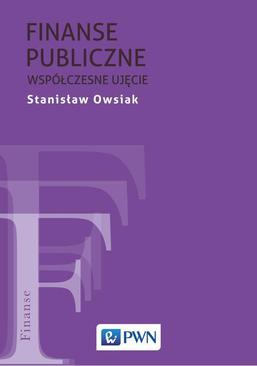
Public finances and the new economic governance in the European Union
5,0
- Autor:
Stanisław Owsiak
- Wydawnictwo:
Wydawnictwo Naukowe PWN
- ISBN:9788301199166
- Format:MOBI + EPUB
119,00 zł
Produkt niedostępny
This work is an attempt to assess to what extent the new economic governance of the EU helped to discipline public finances in the member states.
The poor institutional design of the EU, the authors point out, magnified the negative fiscal effects of the last financial crisis. The work attempts to examine the degree of fiscal consolidation of member states. Both, the austerity policies, as a method of consolidating public finances, and the so-called non-Keynesian fiscal policy effects have been scrutinized. Moreover, the methods of disciplining public finances in Germany, Great Britain, Hungary and Poland have been thoroughly evaluated.
The specific experience of other Member States has also been taken into account while identifying the advantages and disadvantages of current fiscal consolidation strategies. So as to examine the relationship between the budget balance and other macroeconomic variables as well as to identify changes in the economic potential of the member states and in assessing the economic convergence processes, the work relies on quantitative methods.
Prof. dr hab. Stanisław Owsiak – the long-term head of the Chair of Finance at the Faculty of Finance at the Cracow University of Economics, the holder of an honorary doctorate of the University of Szczecin, a member of the Scientific Council of the Polish Economic Society, the deputy chairman of the Committee for Economic Sciences of the Polish Academy of Sciences, a member of The Committee on Financial Sciences of the Polish Academy, member of the Economic Education Board of Narodowy Bank Polski, the chairman of the Main Committee of the Economic Knowledge Contest.
Reviewed book is the original, innovatory work which contributes to the development of finance science as well as macroeconomics. The authors shed new light on the problems of public finances in the member countries of the European Union. Application of well-chosen research methods, including quantitative methods, allowed them to discover many new dependencies and stylized facts in public finances and macroeconomics. This book is useful reading for economists, financiers, political scientists, economic sociologists, students of economic studies, journalists, politicians and for all who are interested in economics and finance.
Prof. dr hab. Sławomir I. Bukowski
Kazimierz Pułaski University of Technology and Humanities in Radom













